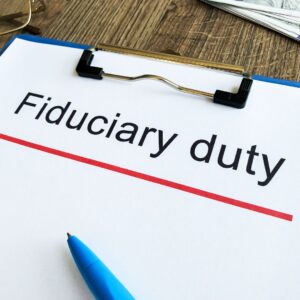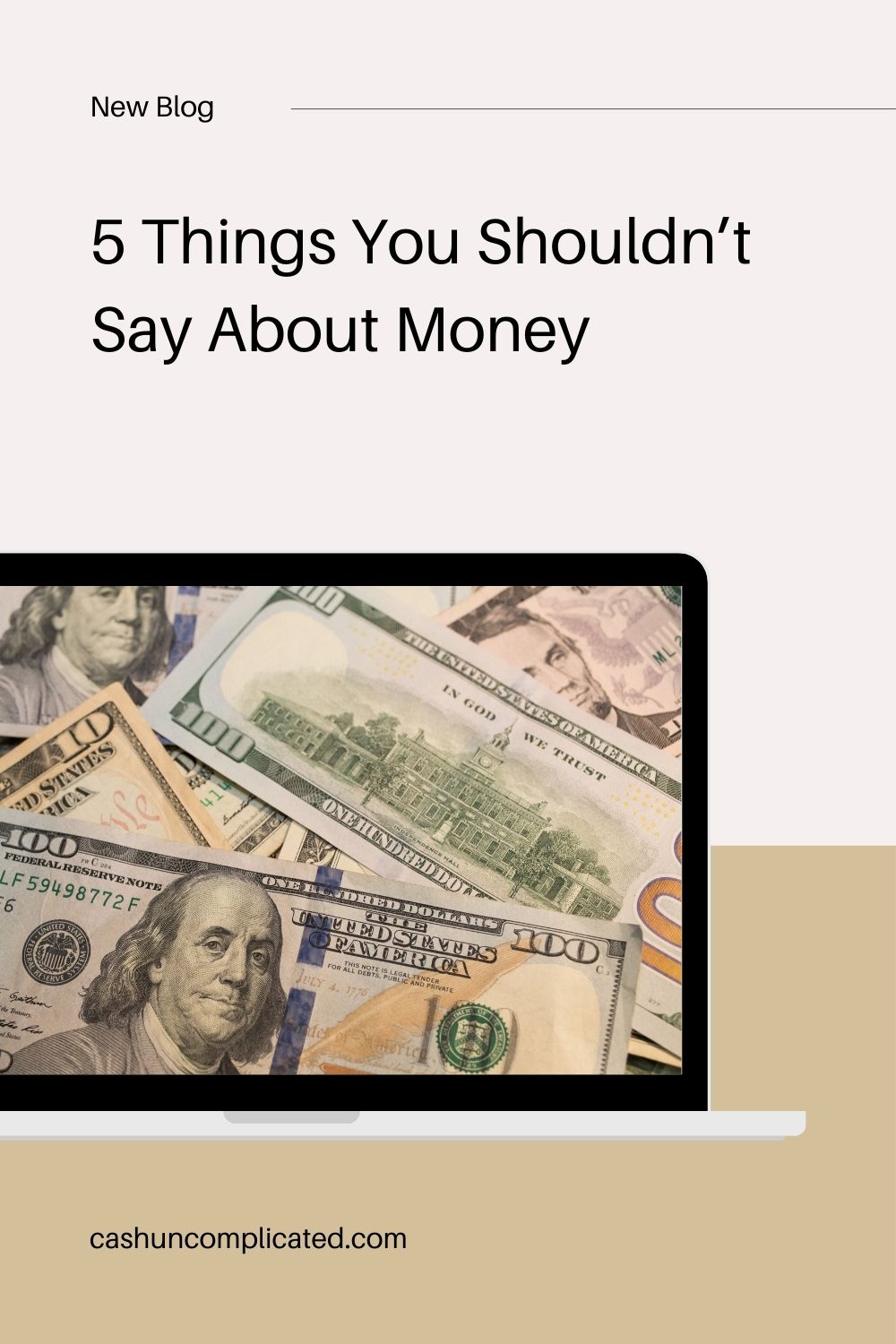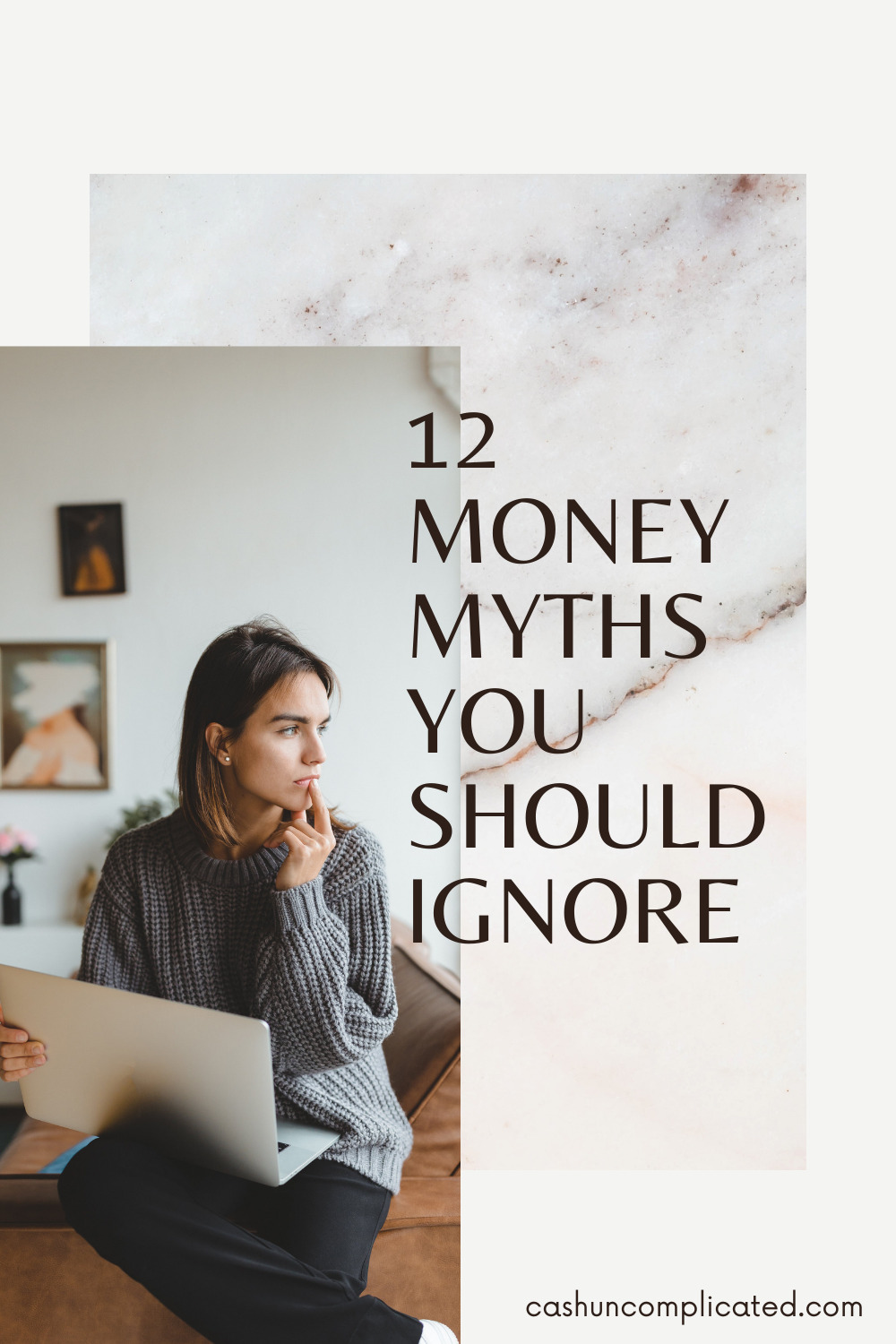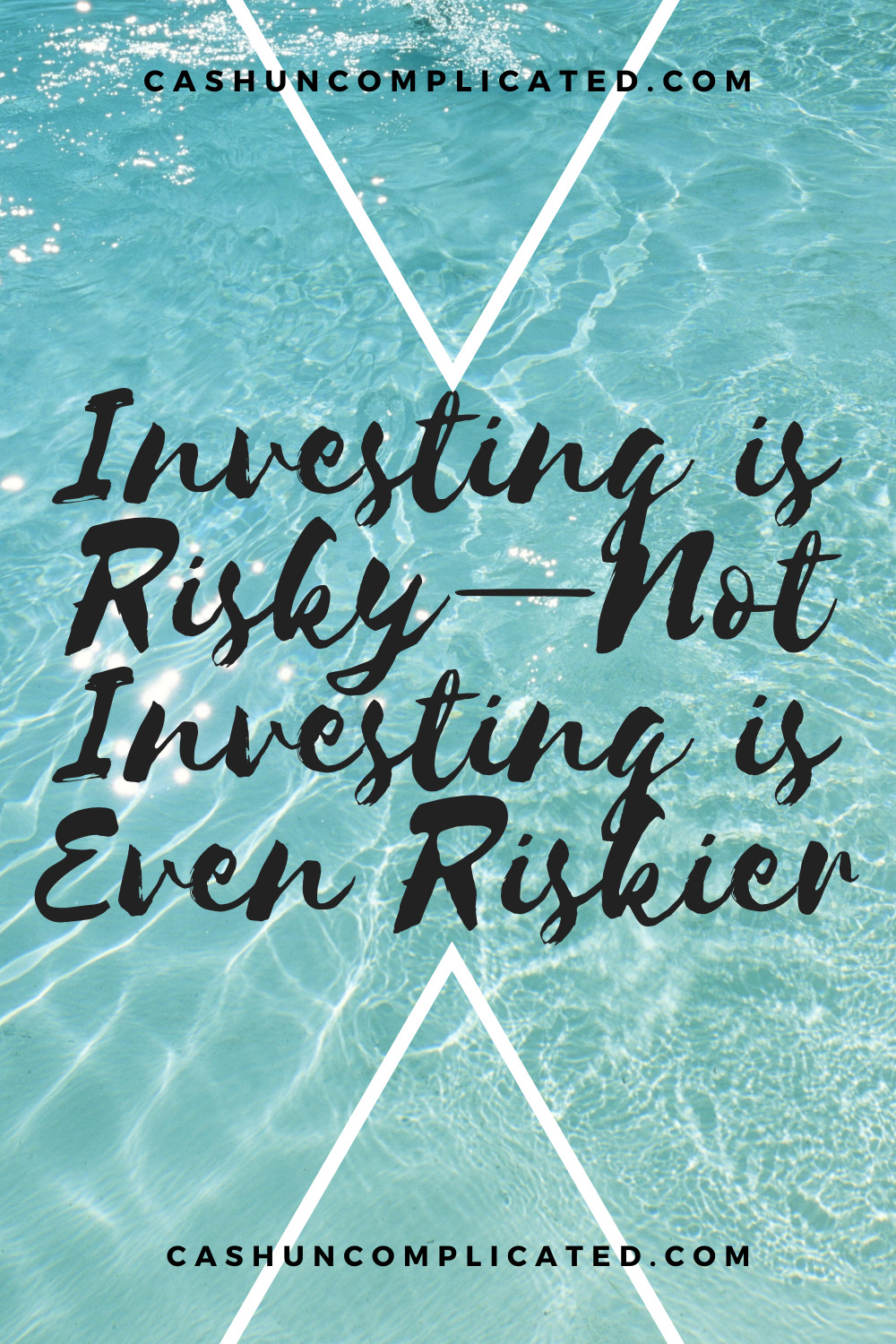Hiring a financial advisor is a big decision. Whether you have worked for many years or just started in the workforce, this is your money that you’ve worked hard to earn. The 10 interview questions for a financial advisor outlined in this post will greatly help you pick the right person for your needs and values.
Before We Get Going..
Before we get going too much, a disclaimer that I am not a financial advisor. I was inspired to write this post because I’ve talked to way too many people who hired the wrong advisor, don’t understand what is being done with their money, and are unclear about the fee structures.
This is not a good feeling or good reality. Whether you are DIY or work with an advisor, it’s important to know where your money is going and have an understanding of the process.
It’s a terrible feeling to be lost in the woods and my hope is that this post will empower you to gain, or regain control, of your personal finances if you happen to be working with an advisor.
Should You Hire a Financial Advisor?
The answer to this question is an individual choice. If you have a robust understanding of personal finance and money and want to manage your money yourself, nothing wrong with that. Or if you want to learn to manage your money on your own and avoid the advisor route, that’s works for most people.
Or you might be really busy with your career and family and want to get some help with your money. Your financial situation could be rapidly changing as well (earning more money at work, started a business, trying to save for college, etc.) and you just want some additional guidance.
Hiring a Financial Advisor vs DIY
Many people manage their own personal finances and investments. It’s not an impossible task that only a select number of people can do. I personally manage all of my personal finances, including investments and savings.
I’m very comfortable doing this and have done enough research to where I feel highly competent in the area. At some point I might hire a fee only financial advisor to review my financial situation and check for blind spots, but I’ll do most of the money management on my own.
A big case can be made to hire an advisor for someone with minimal financial literacy, especially if they don’t have much of a desire to learn. A good advisor will look out for this persons needs and make sure their personal finances are moving in the right direction.
Number 1: What Does Your Investment Portfolio Look Like?
This question is one I picked up on Darren Hardy’s podcast Darren Daily. He said that when he was looking for an advisor he asked each advisor he was interviewing to show him their own portfolio. The one who did show his successful portfolio earned the business based on his highly successful track record.
If I were hiring an advisor, I’d want someone with a successful track record. I also want to see that track record so he or she can mirror my portfolio as close as possible to theirs. Of course I realize everyone has different needs, risk tolerance, and net worth, but I want to get it as close as possible to the person I’m working with so I can have the same success.
What I really want to avoid is a situation where an advisor is recommending a bunch of products they never use but get a high commission for. That’s not really looking out for my best interests or optimizing my investment portfolio.
Number 2: Are You a Fiduciary?
A fiduciary is someone who is required to act in the best interest of their clients.
Not all advisors are a fiduciary though. That’s why you have some advisors trying to sell you insurance products that don’t meet your needs, or get you to invest in inferior products.
A fiduciary will prioritize your interests and provide you with helpful advice that will move you towards your personal finance goals.
Related: It’s OK to Change Your Personal Finance Goals
Number 3: What Are Your Fees?
Number three on the list of questions for a financial advisor pertains to fees. Here’s the simple question I recommend asking: What are your fees?
This is a tremendously important question to ask because it involves your money and compounding. Many advisors collect a fee of one percent or more of the portfolio, which means that money spent on fees does not have the opportunity to compound.
“One percent” seems insignificant to many people so it’s often ignored. Big mistake. Using a one-million-dollar portfolio as an example, one percent of a million is ten thousand dollars. That’s ten thousand dollars that doesn’t have the opportunity to grow.
The next year one percent is taken again, and the year after that, and the years after that. Over the course of 20 or more years, that’s tens of thousands of dollars in fees. Or even in the hundreds of thousands or millions. That is a lot of money!
It’s for this reason that I am a proponent of using a fee-only advisor. It will seem expensive at first because the hourly rates are high, but a good fee-only advisor will review your portfolio, provide suggestions, and give you a plan. They’ve been paid for the service and you aren’t draining your portfolio every year with reoccurring fees.
Number 4: Do You Have a Track Record of Beating the S&P 500 Over a 10 Year Period?
The legend of Warren Buffett continues. There’s a story about him making a one million dollar bet with a hedge fund manager that they could beat the S&P 500. Over a ten-year period, Buffett was correct–the S&P 500 easily beat the actively managed hedge fund.
Here’s my point. If Warren Buffett believes the S&P 500 can beat actively managed funds, why would anyone think any differently? If that’s not enough, here’s another of the questions for a potential financial advisor:
“Do you have a track record of beating the S&P 500?”
If they say yes, don’t just accept the answer, ask for evidence. It’s possible an advisor did beat the S&P 500 over a one-year period, or maybe even a few years. But it’s extremely unlikely they’ve beaten it over a 10-year period or more.
Number 5: Tell Me About a Client Success Story
This should be an easy question for any advisor, but it’s an important one for a couple reasons. Number one, you want to see the skill level of the advisor and how those skills have translated to help a client.
Secondly, the answer to this question is a clue about how well they relate to you as a person. I don’t know about you, but I want an advisor who knows my name and what my goals are. I don’t want to be just a number who pays them.
An advisor who can give you a real client success story (while maintaining confidentiality of course) is someone I’m more likely to work with.
Number 6: What Are the Top 5 Financial Books You’ve Read?
Number six of the questions for a financial advisor relates to an expansion of their education. Degrees and certificates are great, but I also want an advisor who has done some self-education through some of the greatest personal finance books written.
A few books to be on the lookout for:
- Rich Dad Poor Dad
- The Richest Man in Babylon
- The Automatic Millionaire
- The Millionaire Next Door
- Total Money Makeover
- Your Money or Your Life
- The Simple Path to Wealth
- The Millionaire Real Estate Investor
All of these books contain innovative ideas and philosophies I want my advisor to at least be aware of. For example, a great advisor doesn’t need to be a robust real estate investor, but they should be familiar with the asset class as taught in The Millionaire Real Estate Investor and books like it.
Number 7: Why Should I Hire You vs DIY?
This is a great open-ended question. You’re giving a potential advisor the opportunity to give you all the reasons to do business with them. Golden opportunity for the qualified advisor.
Remember, many advisors charge in the neighborhood of one percent of your entire portfolio for their services. For a two-million-dollar portfolio, that’s $20,000–an incredibly large amount of money. For a one-million-dollar portfolio, that’s $10,000–which is nothing to scoff at either.
It’s important to know what someone is doing for you when charging that amount of money. I want to know if they are beating the market, providing me with some great service I never knew about, preserving my wealth during downturns, etc.
Same goes for fee-only financial advisors. Even though the overall costs are significantly less, I still want to know what value they are providing for the money I’m spending. If you’re not satisfied with the answers you’re getting, keep looking for an advisor who does provide sufficient value or consider DIY.
Number 8: Have You Ever Faced Any Disciplinary Action?
This might even be a question to ask first or second. If an advisor has faced major disciplinary action, you’re probably going to stop the interview and move on. Especially if that discipline is recent or involves unethical practices.
You can also obtain the answer to this question before the interview even starts by researching a prospective advisor online first. If you find any disciplinary action in your search, you can just cancel the interview (or not schedule it at all) and move on the next person.
You deserve to work with an honest and ethical professional. This is a very important question or part of your due diligence process.
Number 9: What Professional Licenses Do You Hold?
This is also something you can research prior to your interview. A simple search online should allow you to find out what professional licenses a prospective advisor holds. In fact, you should be able to find out this information plus disciplinary action in one search.
Follow up your online query by asking them in person/video conference to verify the information you found online.
Realistically, you may not care about many of the professional licenses you hold, it’s just good info for you to know. That way you know what they are licensed to sell or what kind of advice they are permitted to give.
Number 10: Tell Me About Yourself
This is another question for a prospective financial advisor you may want to move to the top of your list. It’s also a huge opportunity for the advisor you’re interviewing to tell you all about their qualifications, who they’ve helped, how they plan on handling your portfolio, etc.
This question might even eliminate the need to ask some of the other ones since they may embed their answers into it. Think about asking this question first or second for that reason.
This is also the question where you can gauge whether you think you’re a good fit for this advisor. They may give a great answer and be qualified, but it there’s something “off” or you don’t feel like you mesh well with them, you can go another direction.
Conclusion
Hiring a financial advisor is a big decision. Picking the wrong advisor has a lot of negative consequences like years of high fees, lost opportunity cost, and less compounding and wealth building. Any one of these things will delay financial freedom.
The questions for a financial advisor outlined in this post aren’t the golden ticket to hiring the perfect advisor (if there is such a thing), but it’s a good start. In closing, remember that it’s your money and you choose who you do business with.
What questions do you have for a financial advisor?












